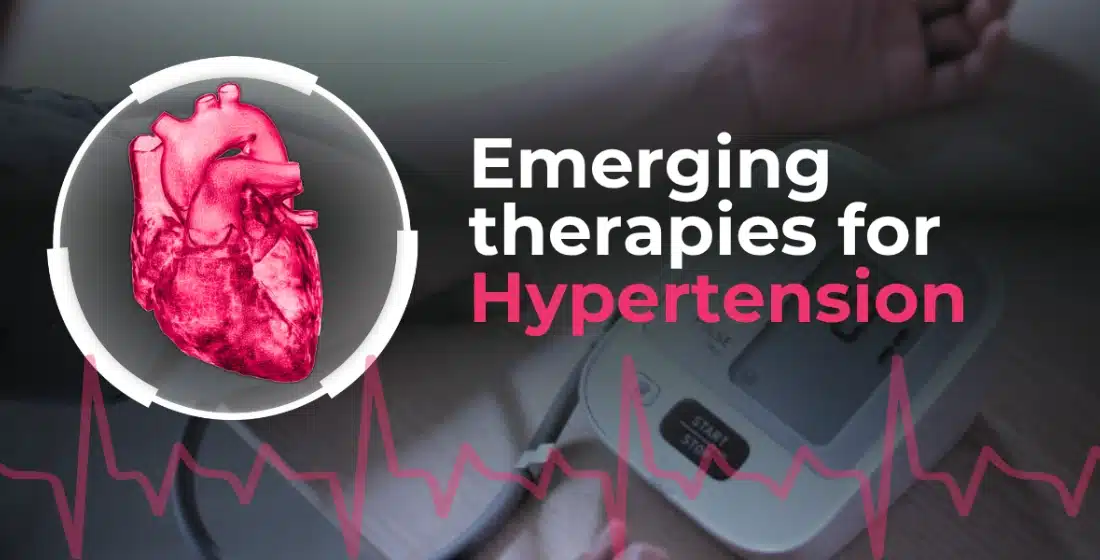Hypertension, a leading global health concern, contributes significantly to cardiovascular morbidity and mortality. Traditional antihypertensive treatments, while effective for many, do not address the underlying pathophysiological mechanisms in all patients. Recent advances in regenerative medicine have spotlighted stem cell and exosome therapies as promising avenues for innovative hypertension treatments

The Importance of Blood Pressure Control in Preventing Chronic Diseases
Maintaining blood pressure within normal ranges is crucial for reducing the risk of various chronic conditions. Epidemiological studies have demonstrated that each 20 mm Hg increase in systolic blood pressure (SBP) or 10 mm Hg increase in diastolic blood pressure (DBP) doubles the risk of fatal cardiovascular events. Effective blood pressure management can significantly lower the incidence of stroke, myocardial infarction, heart failure, and kidney disease. Furthermore, tight blood pressure control has been associated with reduced progression of microvascular complications in individuals with type 2 diabetes.
Stem Cell Therapies in Hypertension Management

Imagine your body’s blood vessels as a vast network of highways, ensuring smooth traffic flow of blood to every organ. When these highways face blockages or damage, it can lead to increased pressure (much like a traffic jam) resulting in hypertension. Recent scientific advancements have introduced mesenchymal stem cells (MSCs) as potential traffic controllers and repair crews, offering hope for better blood pressure management. Preclinical studies have demonstrated their potential in addressing various forms of hypertension:
- Pulmonary Arterial Hypertension (PAH): In PAH, the arteries in the lungs become narrowed, making it harder for blood to flow and causing the heart to work overtime. Studies have shown that introducing MSCs can reduce this strain. These stem cells help by:
-
- Reducing inflammation: MSCs can calm the immune response, decreasing inflammation in lung tissue
- Repairing vessels: They promote the repair of damaged blood vessels, improving blood flow
- Improving heart function: By easing the pressure in lung arteries, they help the heart pump more efficiently
- Renovascular Hypertension: This form of high blood pressure arises from narrowed arteries supplying the kidneys. When kidneys receive less blood, they signal the body to raise blood pressure. MSCs have shown promise here by:
-
- Enhancing Kidney Blood Flow: They aid in widening the renal arteries, ensuring better blood supply
- Reducing Kidney Damage: MSCs help in healing scarred kidney tissues, preserving their function
- Balancing Hormones: They modulate the release of hormones that regulate blood pressure.
- Targeting Inflammation at Its Source: A key player in hypertension is the NLRP3 inflammasome (a component of our immune system that, when overactive, can lead to increased blood pressure). MSCs have been found to:
-
- Inhibit NLRP3 Activation: By calming this immune response, they reduce inflammation in the kidneys
- Lower Blood Pressure: This anti-inflammatory action contributes to a decrease in overall blood pressure levels
Exosome Therapies: A Cell-Free Alternative
Exosomes as nano-sized vesicles that carry proteins, lipids, and genetic material between cells, influence various physiological processes. In the context of hypertension, exosomes have been found to:
- Modulate Blood Vessel Function: They help maintain the health of the endothelium (the inner lining of blood vessels) ensuring proper dilation and contraction, which is vital for regulating blood pressure
- Reduce Inflammation: Exosomes can carry anti-inflammatory signals, helping to alleviate chronic inflammation that contributes to high blood pressure
- Promote Vascular Repair: They aid in repairing damaged blood vessels, preventing the stiffening and narrowing that can elevate blood pressure
While research is ongoing, the potential of exosome-based therapies offers a promising avenue for managing hypertension. By harnessing the natural communication pathways of cells, these therapies aim to address the root causes of high blood pressure, offering hope for more effective and holistic treatments in the future.
Conclusion
The integration of stem cell and exosome therapies into hypertension management represents a promising frontier in regenerative medicine. By addressing underlying pathophysiological mechanisms, these therapies not only aid in blood pressure control but also reduce the risk of chronic diseases associated with hypertension. Emerging research suggests that these innovative treatments may improve vascular health, reduce inflammation, and enhance overall well-being.
At our clinic, we are committed to providing cutting-edge regenerative therapies tailored to individual health needs. Our personalized approach aims to harness the body’s natural healing processes to restore balance and promote longevity. We invite you to visit our clinic to learn more about how these therapies can be integrated into your health journey, offering a path toward improved quality of life and sustained vitality.
Bibliography
- Martín-Fernández, J., Alonso-Safont, T., Polentinos-Castro, E., et al. (2023). Impact of hypertension diagnosis on morbidity and mortality: A retrospective cohort study in primary care. BMC Primary Care, 24, 79. https://doi.org/10.1186/s12875-023-02036-2BioMed Central
- Luan, Y., Zhang, X., Kong, F., Cheng, G. H., Qi, T. G., & Zhang, Z. H. (2020). Mesenchymal stromal cell-derived exosomes improve pulmonary hypertension through inhibition of pulmonary vascular remodeling. Respiratory Research, 21, 71. https://doi.org/10.1186/s12931-020-1331-4PubMed+2BioMed Central+2PMC+2
- Carey, R. M., & Whelton, P. K. (2021). Guideline-driven management of hypertension: An evidence-based update. Hypertension, 77(4), 806–821. https://doi.org/10.1161/HYPERTENSIONAHA.120.16532
- Kario, K., & Wang, J. G. (2021). Hypertension update: A reflection of the past decade. Hypertension Research, 44(11), 1236–1245. https://doi.org/10.1038/s41440-021-00710-2
- Kario, K., & Wang, J. G. (2021). Hypertension update: A reflection of the past decade. Hypertension Research, 44(11), 1236–1245. https://doi.org/10.1038/s41440-021-00710-2
- Sabbah, H. N., & Goldsmith, S. R. (2024). Diagnosis and management of hypertensive heart disease: Incorporating 2023 European Society of Hypertension and 2024 European Society of Cardiology guideline updates. Journal of Cardiovascular Development and Disease, 12(2), 46. https://doi.org/10.3390/jcdd12020046
- Kario, K. (2022). Controversy in hypertension: Pro-side of the argument using artificial intelligence for hypertension diagnosis and management. Hypertension, 79(4), 743–750. https://doi.org/10.1161/HYPERTENSIONAHA.121.18484PMC
- Kim, J., & Lee, J. (2022). Stem cell and exosome therapy in pulmonary hypertension. Korean Circulation Journal, 52(2), 97–104. https://doi.org/10.4070/kcj.2021.0319
Ready to learn more about stem cell therapy?

At Stemwell, our team of doctors are highly skilled in successfully supporting thousands of people with a range of stem cell treatments. If you would like to learn more about stem cell therapy you can contact us with any questions, or apply today to check your eligibility.



